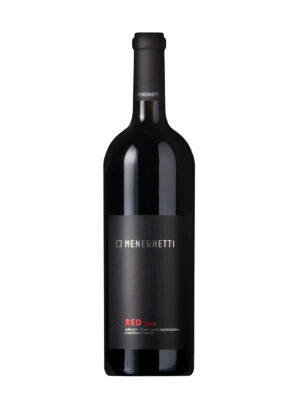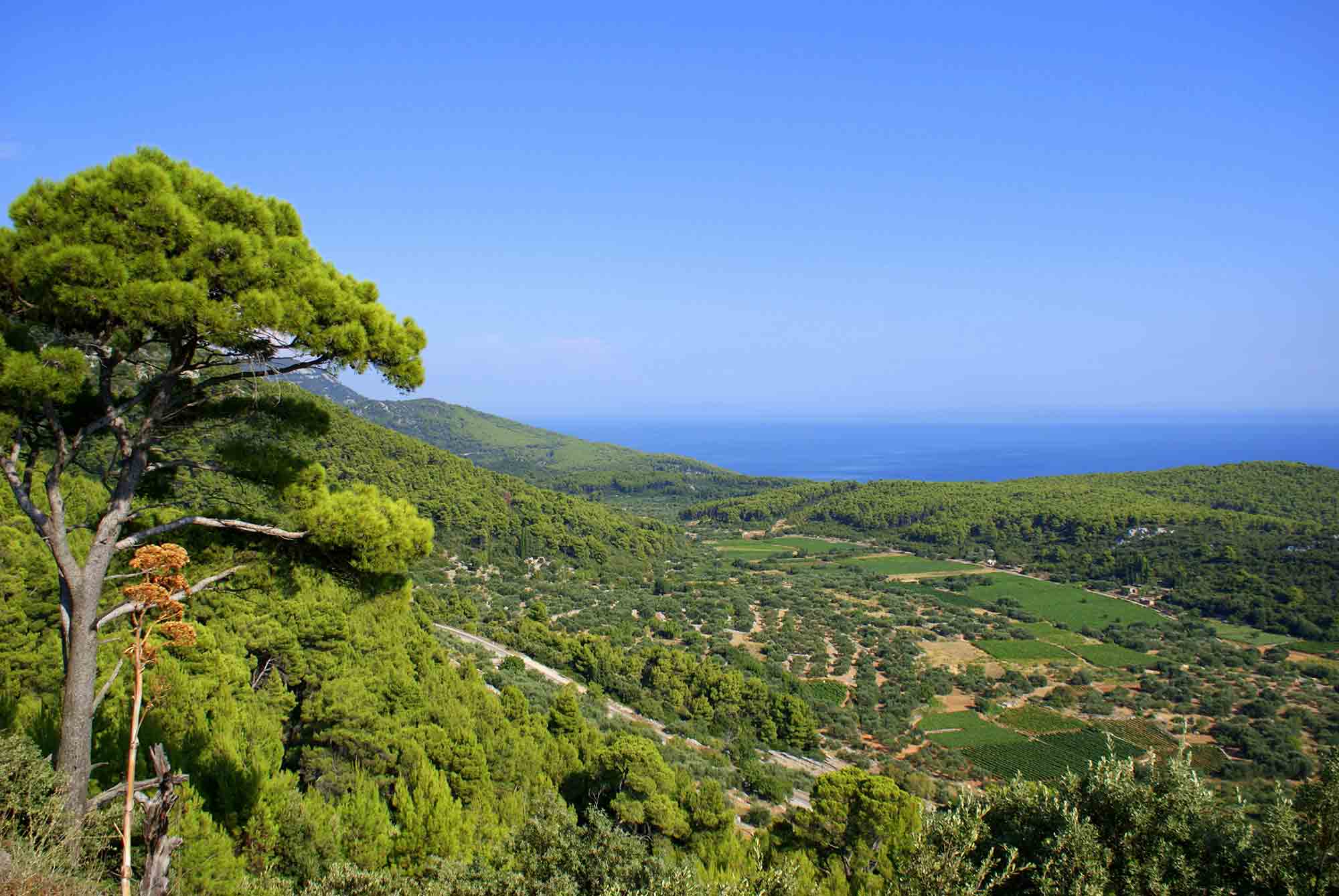Grk: Croatia’s Most Unique Grape Variety
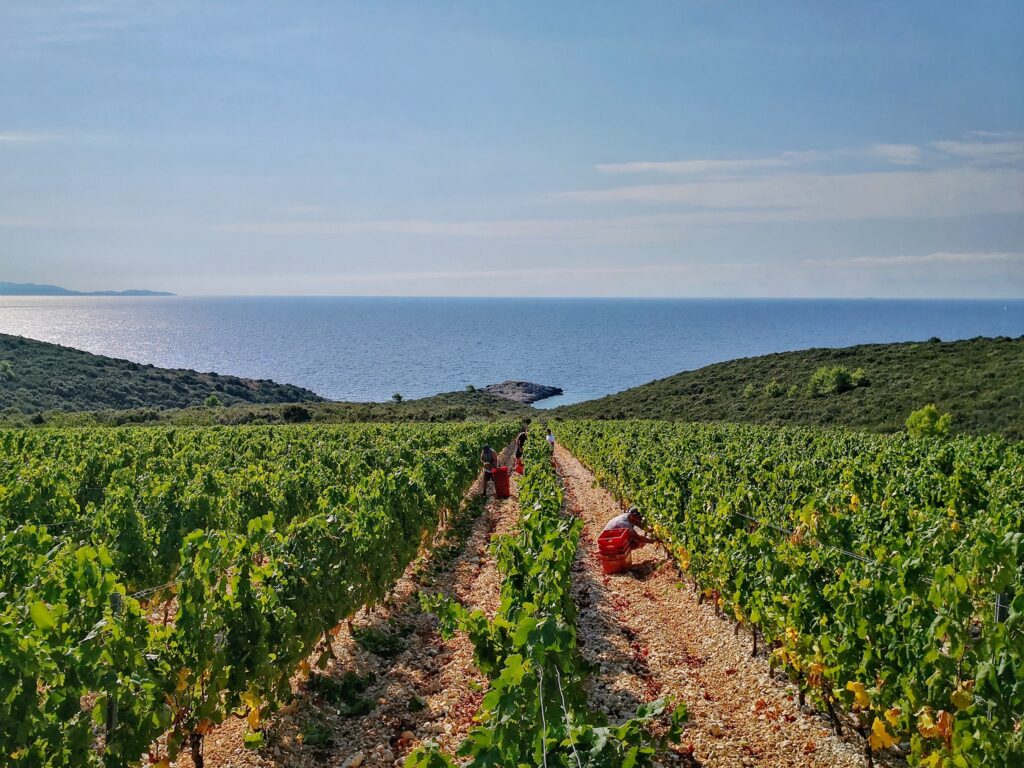
Obscure, rare, noble! Those are the synonyms for the one-of-a-kind Croatian variety – Grk. Grk grapes were historically grown in the sandy topsoil of Lumbarda, a small town on the island of Korčula, making it one of the country’s most unique indigenous grape varieties. It deserves all the attention, so let’s investigate why it’s so unique!
The origin of Grk
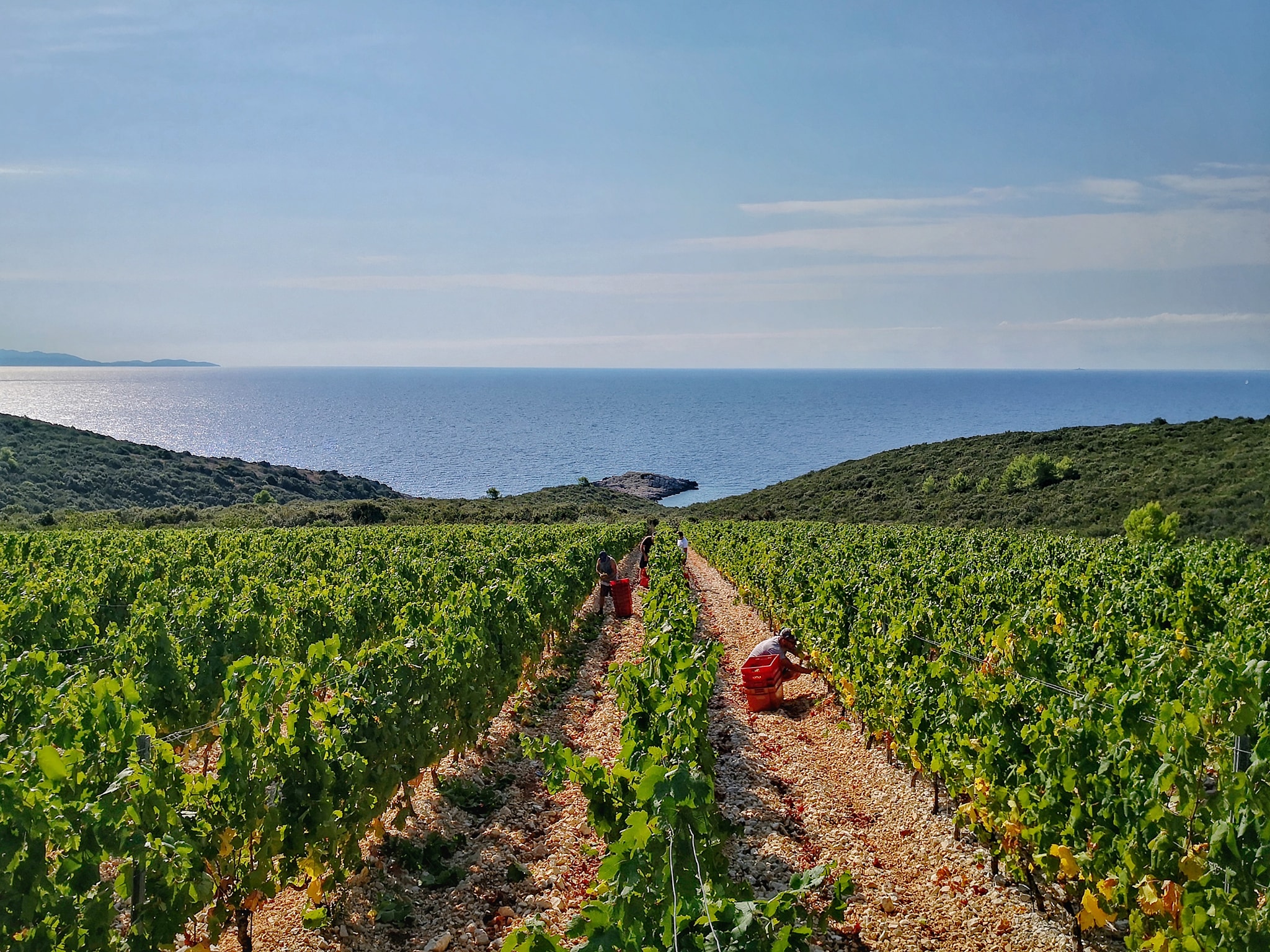
Around the small city of Lumbarda on the island of Korčula, a very peculiar grape variety grows. Do you know how in the movie the head of the family brags about how the Greeks invented everything? Well, the Croats “invented” Grk!
Grk (Croatian word for Greek) is a native Croatian grape variety. The grapes thrived in the sandy soils surrounding Lumbarda, enabling them to withstand the phylloxera outbreak that devastated vineyards in France and Italy in the late 1800s and in Croatia at the start of the 1900s.
For centuries, this unique varietal has been cultivated on a limited scale within a limited area and, as a result, stands out as one of the more distinct varietals in the region.
Although the name might indicate a Greek origin who, around 400 B.C., expanded their reach in the Adriatic and cultivated vines on the nearby Croatian islands of Vis, Korčula, and Hvar, recent genetic studies have not shown any connection with Greek varieties.
Moreover, Grk was also compared to the Italian Greco, but the match wasn’t exact.
Grk is, therefore, confirmed to be native to Croatia and a close relative to Tribidrag, aka Crljenak (better known under its other names, Zinfandel and Primitivo).
It is said that Grk vines grow best in the rocks and sand next to the water’s edge just outside Lumbarda on Korčula. The legend goes that the vine absorbs the sea salt in the air giving it the unique crisp, fruity, and slightly briny taste.
Although produced mainly as a dry wine, some wineries produce sparkling, mature, and sur lie aged wines and make traditional Dalmatian dessert wines – Prošek.
Peculiar Grk (or Grkinja)
Amongst the 1% of varieties in the world that cannot self-pollinate, Grk is often called “the most feminine of all the grapes,” but the reason for that is not its taste but rather the fact that the variety has only female functional parts of the plant.
That fact alone suggests its ancient origins. Therefore, it must be planted with other grape varieties to reproduce successfully. On Korčula, it is most planted next to the well-known Plavac Mali, the most planted (and most popular) red grape variety in Croatia. The reason behind this is that both of those varieties blossom simultaneously, resulting in ripe fruit at the beginning of September. Talking about the perfect pairing!
How do you pronounce Grk wine?
GRK [g r k]
The pronunciation of the word “Grk” can spark amusement among language enthusiasts. The seemingly “perplexing” string of three consonants is pronounced exactly as it appears. Similar to the word “Greek” without the final “ee” sound. And they carry the same meaning. Try to pronounce it among fellow wine lovers as a playful test of one’s linguistic prowess.
Check out our article that covers the topic of the pronunciation of Croatian grape varieties, and have a blast while you’re trying. 🙂
What does Grk wine taste like?
Although its meaning is “bitter” in Croatian, Grk wine is far from that. Instead, this type of wine is known for its moderate aroma and distinct salinity.
A well-crafted Grk wine will showcase ripe fruit notes, a citrus and herbal lift with a mildly bitter finish, and a rounded mouthfeel that develops when aged on the lees for several months.
Grk wine can vary in sweetness and briskness, depending on the year and winemaking process, but it generally has a crisp and fruity taste with a pronounced minerality.
On the one hand, Grk has a warm feel on the palate and is extremely rich with flavors just like Chardonnay and intensely aromatic like a Sauvignon Blanc. On the other, it encompasses a refreshing acidity that reminds us of Riesling.
But it has a distinct character that sets it apart from other wines and makes it impossible to put an equality sign between any of the mentioned. When handled carefully, Grk provides a unique salinity expression and mineral undertones that deepen further with aging.
Grk food pairing recommendations
If you’re a seafood lover, there’s no better way to indulge your taste buds than by pairing Grk with shellfish, top-quality white fish, lobsters, or shrimps. To take your gastronomic experience up a notch, you can savor a bowl of mussels and complement it with a bottle of Grk – undoubtedly one of the most sublime Dalmatian wines and food pairings.
Best Grk wines
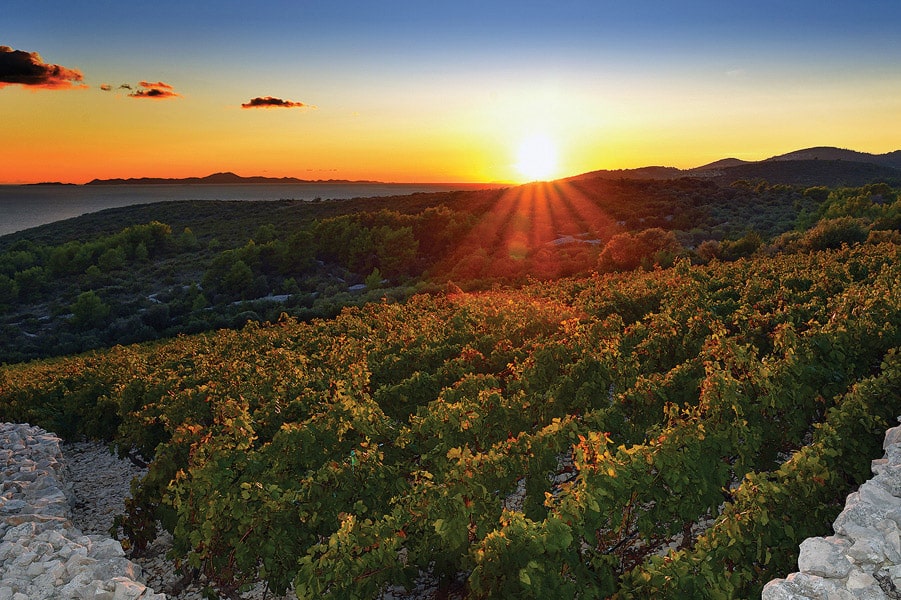
There are very few Grk wine producers. In fact, this selective grape was found nowhere else up until recent years when a handful of Dalmatian producers started planting Grk outside Lumbarda, most of them on the Pelješac peninsula.
Notable producers from Korčula island are:
- Bire winery,
- Batistić – Zure Winery,
- Cebalo winery,
- Radovanović winery,
- Popić winery,
- Lovrić winery,
- Batistić – Fidulić winery.
Notable producers from the Pelješac peninsula are:
- Matuško winery,
- Križ winery,
- Madirazza winery,
- Grgurević winery.
Platinum Decanter awards went to Grks, namely Bire Grk Defora in 2021. In 2022. Golden Decanter awards went to Zure Grk and Zure Grk Sur Lie Reventon.
Conclusion
Not many Grk wines are produced, therefore, getting your hand on one of them might be quite a challenge. Some say that your best chance of buying it is in Korčula, so if you’re considering visiting Korčula (or Pelješac), we’ve got some great guiding tips that will make planning your trip a breeze. You’ll have all the information you need in one convenient place.
However, we’ve got you covered if this is not an option. Pop off to our Grk collection and have your bottle of Grk delivered to your doorstep.
Cheers, or as Croats say, Živjeli!



